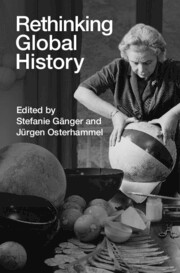Historians have long argued that science was fashioned as a bourgeois, Western cultural practice by the late nineteenth century, in ways that allowed its practitioners to exclude or distance themselves – through a rhetoric of endeavour, utilitarianism, and progress – from the more useless, ‘frivolous’ learning of aristocrats, women, or, indeed, native ‘informants’ in the colonies. This article examines the case of scholars from outside northern Europe and North America – Japanese literati, creole intellectuals, and Lebanese scholars – who managed to participate in the period’s Western scientific networks as peers. It holds that these men were able to establish epistemic credibility not because their lower rung in a political and racial hierarchy was ever irrelevant, but because their status as upper-middle-class professionals and their bourgeois habitus – their ‘civility’, and ‘manners’ – in some measure made up for it. The article reveals, rather than forthright ‘exclusion’ and ‘silencing’ of non-Europeans, complex epistemic hierarchies and geographies of knowledge. It exposes the mechanisms of epistemic inclusion and its limits in the period: the functioning of an academic community that was – in many, rather significant ways – also a social world.
